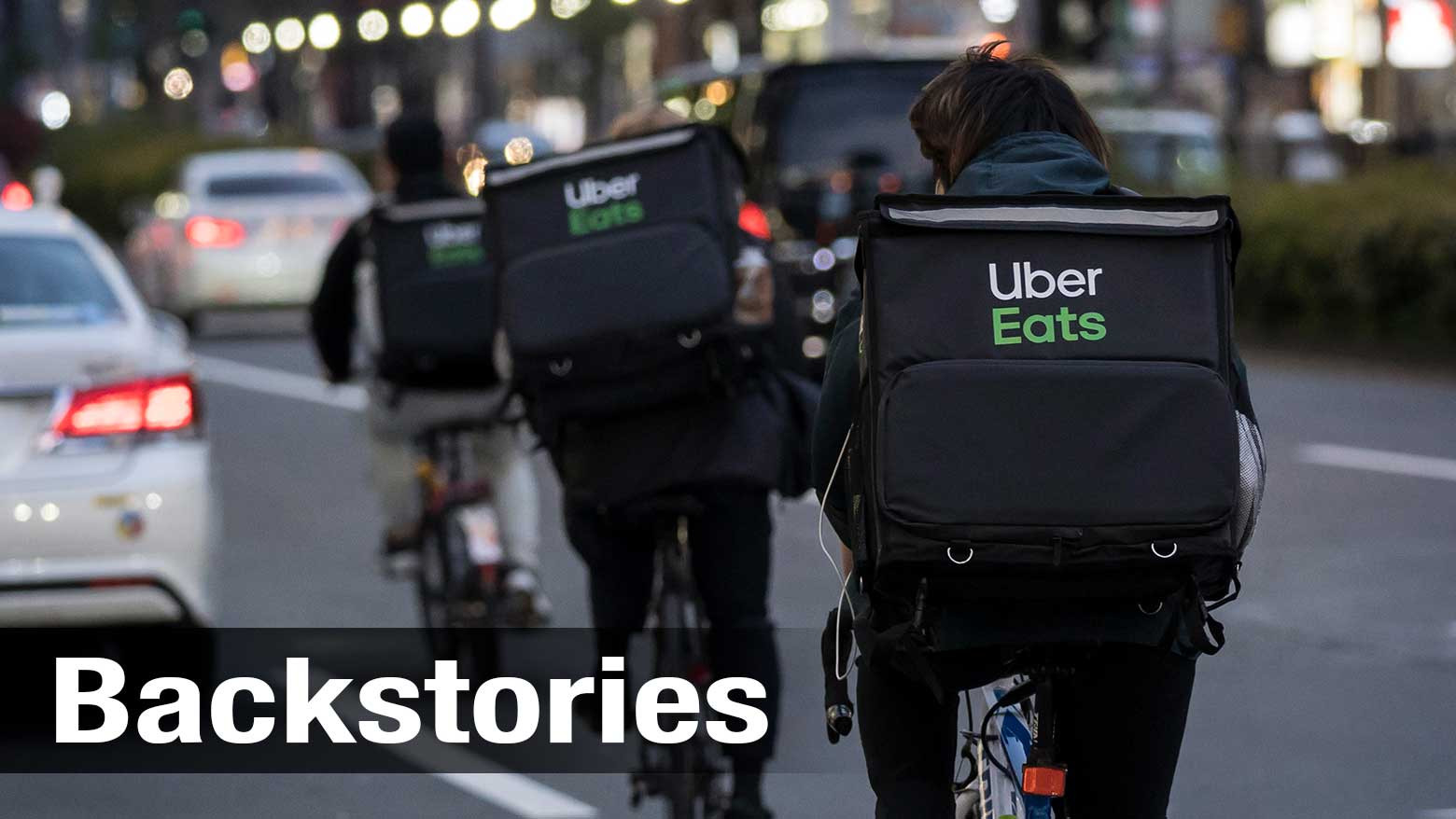Restaurant reservation website TableCheck says it has lost 60 to 70% of its reservations in the past week. The site says restaurants now get around two reservations per night for late April, compared to between 10 and 20 during the same period last year.
This dip could be disastrous for the industry. Experts say small- and medium-sized restaurants usually have cash reserves to maintain operations for about two months. A decline in customers that lasts any longer could put them at risk of shutting down.
Some local governments have started to offer help to struggling owners. Kobe City in Hyogo Prefecture, one of the areas covered by the emergency declaration, last week announced a program in partnership with Uber Eats. Customers can get up to a 10% discount on delivery orders from restaurants in the city. The city will shoulder the costs of the discount. The program will be in place until July 12 and city officials say it will help not only boost restaurant sales but provide short-term employment to delivery staff.
The Osaka prefectural government is also planning a similar program. Users of food delivery services will be able to get coupons worth 500 yen, or about four dollars, for every order of 1,000 yen, about nine dollars, or more. The Tokyo Metropolitan government says it is also considering a similar initiative.
But some have questioned whether these delivery discount programs will be enough to tide restaurants over.
In an online survey conducted by Nomura Research Institute in March, 85% of respondents said they were ordering delivery as frequently as they normally do. 3.7% said they were using delivery services less frequently, while only 2.7% said they were using them more frequently.
Mori Takeshi, a senior researcher at Nomura, says the general economic uncertainty may be pushing down delivery orders. Many people are looking to cut expenses, as they are out of work or don’t know when they can return to their jobs. Mori says delivery, which is more expensive than cooking at home, may be one of the things they sacrifice.

He says discounts will have to be similar to the Osaka program in order to convince people to order delivery instead of cooking themselves. Discounts on a smaller scale will have limited effects.
Experts say the longer the pandemic lasts, the greater the economic damage will be. Restaurants are among the first businesses feeling these effects and some will be unable to survive unless drastic action is taken.

